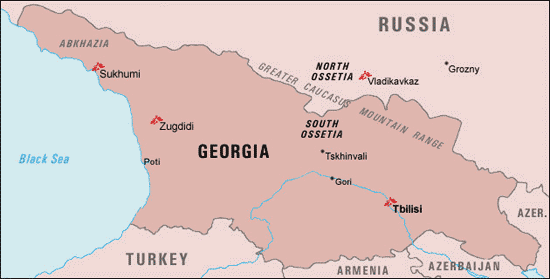
MSF projects in Georgia
Fighting has calmed in and around the breakaway region of South Ossetia, and the warring parties have reached a ceasefire agreement. The short, violent conflict has displaced people in Georgia, South Ossetia and the Northern Caucasus region of Russia.
As of August 20, MSF is still unable to access South Ossetia, the area where the conflict had broken out, in order to conduct an independent needs assessment and provide medical and humanitarian aid to the population if necessary. MSF teams are negotiating with the authorities to gain unimpeded secure access to the region.
In the last three days in Georgia, MSF assessed camps for displaced persons in and around the city of Tbilisi, where around 20 settlements have been established, and in the city of Gori. In the 10 camps that MSF visited so far, hundreds of people were living in public buildings, lacking water and basic sanitation. MSF is providing basic relief supplies and medical care through mobile teams in eight of these camps, serving over 3,200 displaced people. Our teams will continue visiting other camps in the region.
An MSF team working in the western Georgian city of Zugdidi also conducted assessments in the port city of Poti, and in another coastal region, Adjaria. MSF found that the local health authorities were coping with the situation, but is ready to provide assistance if needed.
MSF continues to treat multidrug-resistant TB (MDR-TB) through programs in Sukhumi (Abkhazia) and Zugdidi (western Georgia). MSF is concerned that some of the patients in the Zugdidi program were forced to interrupt their treatment during the acute phase of the conflict, which can have adverse effects on their health. Since MDR-TB is a highly contagious illness, an interruption in treatment also poses a risk to those around them.
Thousands of refugees from South Ossetia have fled the violence by crossing the border with Russia, and have been accommodated by local authorities in border regions. MSF has visited several refugee camps set up in public buildings, such as schools and sanatoria, in the regions of North Ossetia and Kabardino-Balkaria. Immediate needs were being addressed by local authorities and strong community support.
MSF has donated hygiene items at two sites in Nalchik, Kabardino-Balkaria, where 350 people—around 200 of them children—have found refuge. The organization remains ready to provide further assistance to the population, as needed.



